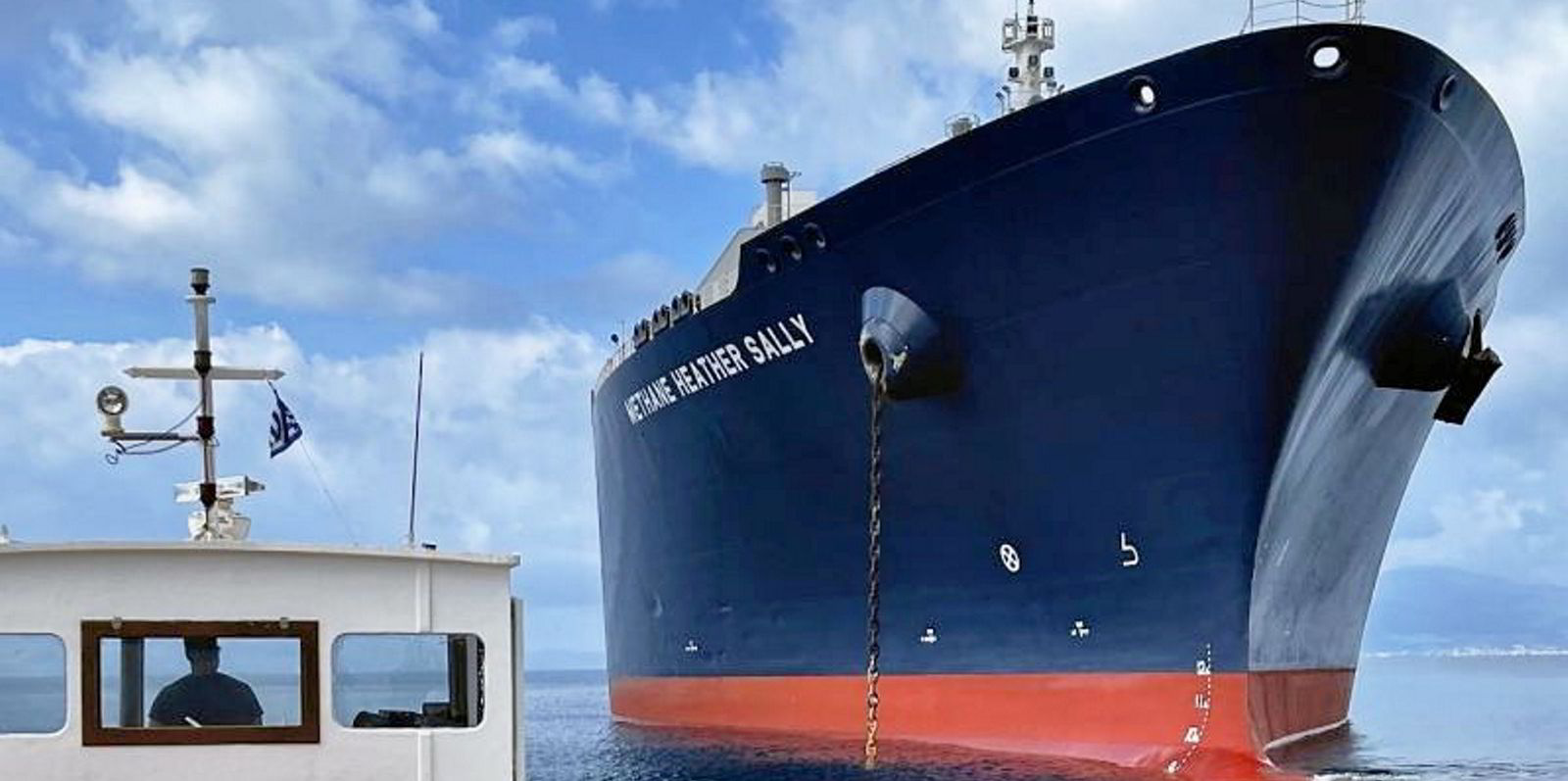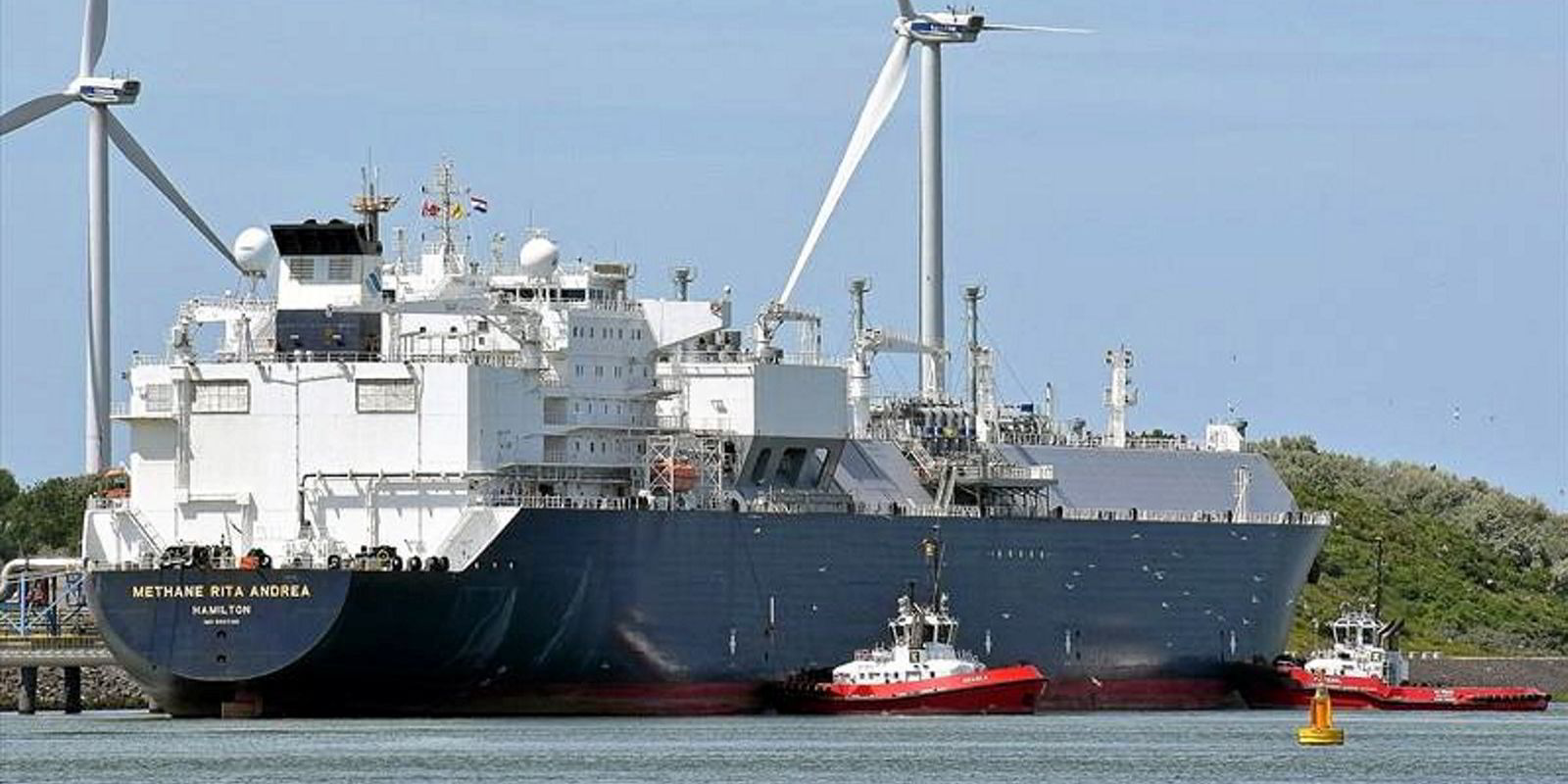A rise in the Annual Efficiency Ratio (AER) of four of the five steam-turbine LNG carriers controlled by US-listed GasLog Partners pushed up the company’s average AER year-on-year.
According to the second sustainability reports issued by GasLog and GasLog Partners and which cover the year 2020, the average AER — or carbon intensity indicator — of GasLog Partners' 15-ship fleet climbed from 9.37 in 2019 to 9.89 last year.
As the company unveiled AER figures for each vessel one steam ship — the 145,000-cbm Methane Alison Victoria (built 2007) — showed a jump from 12.19 in 2019 to 18.41 last year.
However, total CO2 emissions from the fleet of GasLog Partners dropped from 1,220,871 tonnes in 2019 to 1,115,076 tonnes in 2020.
Healthy action
GasLog Partners chairman Curtis Anastasio said in the report: “Our modern steam-turbine LNG carriers continue to serve important regional trade routes and we continue to see healthy activity for their employment as floating storage units [FSU] or as part of the logistics chain in gas to power projects.”
In contrast, privately held GasLog, which operates a fleet of 21 LNG carriers including two steam ships, saw its average AER fall from 9.09 in 2019 to 7.77 in 2020.
Seven of GasLog’s vessels are either under construction or newbuildings delivered since 2020 with reference for the previous 12-month period. However, the AER of the remaining 14 ships dropped for all but three LNG carriers.
The company’s tri-fuel diesel-electric vessels showed the biggest AER improvement.
GasLog detailed that total CO2 emissions from its fleet has grown from 944,682 tonnes in 2019, when it had 14 ships, to 1,075,780 tonnes in 2020 on 18 vessels.
GasLog intends to continue investing in the most technologically advanced ships, industry pilot projects and industry partnerships that enable the further decarbonisation of LNG transportation.
Peter Livanos
In forwards to the 30-plus page report, detailed reports GasLog chairman Peter Livanos said ESG is a key area of focus for the company.
Anastasio said GasLog Partners has seen increasing demand for ESG reporting by the US Securities and Exchange Commission (SEC), Nasdaq and the UK Financial Conduct Authority, as momentum accelerates on climate change from the IMO, the EU Green Deal and individual countries.
Roadmaps
Both reports list how key performance indicators of the Sustainability Accounting Standards Board have changed year-on-year on a wide range of factors including greenhouse gas emissions, ship efficiency indices but also senior management engagement with seafarers, suppliers and investors, as well as diversity and inclusion.
The two companies also laid out their sustainability roadmaps in detail, listing the status of each project.
Livanos said the pathway to decarbonising the shipping industry is challenging.
He said the bulk of emissions can only be removed through the adoption of new technologies and the use of zero-emission fuels, neither of which are currently commercially available at the scale needed.
Obstacles to tackle
Livanos said: “To tackle these obstacles, GasLog intends to continue investing in the most technologically advanced ships, industry pilot projects and industry partnerships that enable the further decarbonisation of LNG transportation."
GasLog and GasLog Partners also named and highlighted some of its seafarers, which it said had gone beyond the call of duty during pandemic-hit 2020.
These included Captain Ilias Dimoskoudis who was unable to be repatriated due to the impossibility of crew changes during the pandemic and spent nine months on the 145,000-cbm Methane Rita Andrea (built 2006). GasLog said he managed both the vessel and the crew to the “highest safety standards”.
The chairman said the company commits to do more this year in the areas of decarbonisation, diversity, equity and inclusion and wellbeing.
Commenting on the reports, GasLog chief executive Paul Wogan, who was holding the same position at GasLog Partners at the time the reports were prepared, said the companies had steamlined their roadmap of initiatives and provided more details on their approach to decarbonisation.
“We believe that it is helpful to have a focused set of ambitions," he said.
He added that the companies will review and revise these every two years.






